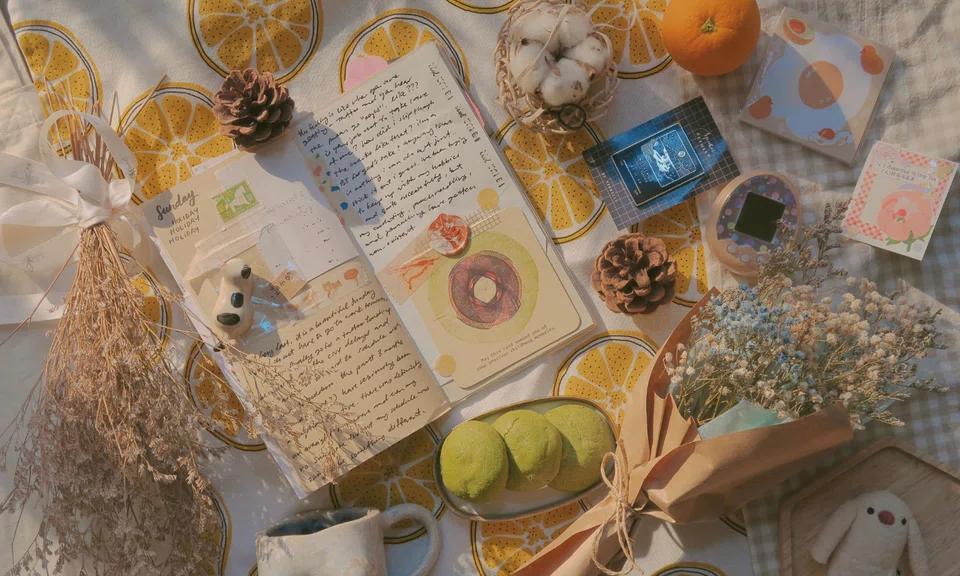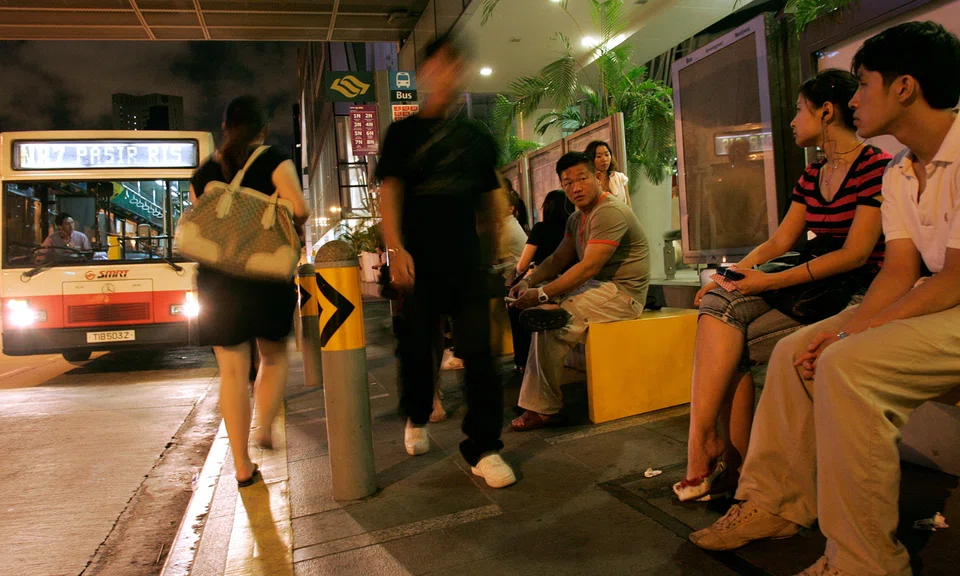'Even leaving the house takes effort': Some young S'poreans are ditching clubs for quiet nights in
"Going out costs money and energy, and I never had much of both," confesses administrative assistant Amy Leung.
For the 31-year-old, whose main hobbies are reading and journaling, "even leaving the house takes effort".
She believes "no one hobby is superior to the rest", and applauds those who can "do it all" – balancing both 'quiet' hobbies like reading with high-energy ones like clubbing.
But that lifestyle isn't for Ms Leung.
"Libraries are completely free and all over Singapore. It's a really cost-efficient way to occupy myself," she quips.
She estimates saving at least $2,000 by borrowing books from public libraries instead of buying them.
On top of that, she saves $100 to $200 each month by staying in rather than going out at night, which adds up to between $1,200 and $2,400 a year.

Ms Leung is part of a growing number of young Singaporeans who have swapped loud nights out for quiet hobbies — from reading and photo walks to board games and binge-watching, according to some experts.
These activities might not be glamorous, but they are meaningful to those who crave calm, focus, or just some peace after a long week.
Finding joy in the quiet
For Teo Xiao Ting, 30, clubbing feels like more of a chore these days.
"Maybe it's age, but I find that it takes at least two days for me to recover from a night out," she says.
A freelancer, Ms Teo spends her free time going on solo photo walks, snapping pictures of anything that resonates with her.
"Going out and clubbing, while enjoyable once in a while, takes a lot to recover from," she adds. "Quiet nights, on the other hand, feel good both during and after — they recharge me and help me live more in the present."
"When I go for walks and take photos, the world feels more beautiful and I feel more grounded too."
Clinical psychologist Dr Karen Pooh from Alliance Counselling says this growing preference for quiet hobbies reflects a shift in how young people define happiness.
"Such activities give a sense of calm and purpose that aligns with how many young people now define happiness," she notes, adding that workplace burnout may also play a role.
"More young adults (are beginning) to prioritise their wellbeing — choosing slower, more mindful lifestyles instead of chasing constant productivity or social validation."
Trading clubs for connection
For some, the draw of quiet hobbies is not solitude — it's connection.
Gen Liaw, 27, who works in healthcare, hosts board game nights with her friends.
"With quiet nights in, I find it more fulfilling to bond with my friends through games, have a cosy space to converse, and at the same time work our brains to try to win," she says.
Her passion for board games has even made its way into the workplace — she's introduced them to colleagues to play over lunch.
After the pandemic, Ms Liaw and her friends initially went clubbing, but most were introverts who tired quickly.
An extrovert herself, she enjoys conversation but finds it difficult in clubs where she has to shout.
"I personally don't see much value in clubbing and drinking," she says. "There isn't much quality engagement when most (people) are intoxicated, considering the amount of money and effort I spend on going out."
Dr Jonathan Kuek, adjunct lecturer in Psychology at James Cook University, says such activities can still help people build relationships. "Quiet hobbies can facilitate social connectedness by encouraging people to develop more authentic, deep relationships with the people they choose to engage with," he explains.
When fun gets expensive
Beyond energy levels, the cost of going out is another reason many are staying home.
Ms Liaw says her friends aren't fans of clubbing or drinking, so she tends to stay in unless "good company and music" are guaranteed.
"It's fairly expensive to club, considering cover charge, drinks and transport for very little value (in return)," she adds.
Ms Teo agrees. "Rising costs" have made her lean towards hobbies that don't involve money, like photography walks.
Clinical psychologist Cheok Yong Xin, from Khoo Teck Puat Hospital and Yishun Community Hospital, said the trend reflects the financial pressures young adults face today.
She cited Deloitte's 2024 Gen Z and Millennial Survey, which found that roughly six in 10 Gen Zs (56 per cent) and millennials (55 per cent) live paycheck to paycheck, and around three in 10 do not feel financially secure.
"Nightlife has simply become expensive, with rising rental costs, higher alcohol taxes and GST," she said.
Underground bar Mad & Midas' shared with The Straits Times that Singapore's alcohol duties can cost up to half the price of a bottle of spirits. This translates into expensive drink prices, with cocktails typically costing upwards of $25 in bars.
Cover charges, which typically include just one drink, can also set thrill seekers back easily by $30, or even more.
A search on popular nightclub Marquee's site showed that tickets to guest DJ Timmy Trumpet's costs $60, albeit with unlimited drinks.
Ms Cheok also adds that logistical challenges, such as the end of NightRider bus services and pricey ride-hailing fares, have made nightlife even less appealing.
At its peak, the now-defunct NightRider bus service charged commuters a flat fare of just $4.50 per ride, regardless of payment method.
Today, unless one waits for the first bus or train service, getting home via ride-hailing apps such as Grab or Gojek can cost up to ten times more due to dynamic surge pricing.

While quiet hobbies are great for mental health, psychologists say moderation is key.
"Extended or habitual withdrawal can mask avoidance — retreating from difficult emotions or uncertainty rather than actively engaging with them," warns Ms Cheok.
Self-care, she adds, should "restore energy and prepare us for re-engagement". Overdoing solitude can "increase anxiety, loneliness, and social isolation over time".
Dr Pooh also cautions against turning it into a competition.
"If someone adopts a quiet lifestyle just to follow a trend, it can backfire. Social media comparisons can creep in — 'Am I resting the right way?'"
Still, Dr Kuek believes there's value in these hobbies — as long as people do them sincerely.
Social media, he says, can be a good starting point "so long as people have an authentic desire to participate and aren't doing it performatively".
A long-term lifestyle shift
Experts agree that this isn't a passing trend.
This "long-term recalibration of values", says Ms Cheok, shows that "young Singaporeans are increasingly prioritising mental sustainability and emotional bandwidth, seeking smaller, deeper social circles instead of large, high-energy gatherings".
Dr Kuek adds that it reflects a wish for a life "not dominated by work and the endless pursuit of materialism".
And while trends will evolve, "the mindset behind it – wanting balance, authenticity, and mental wellbeing – is here to stay", says Dr Pooh.
As for Ms Leung, she's content with her quiet, steady rhythm.
"I've tried (other hobbies), but honestly it's hard and I find myself getting restless to get back to my book," she says.
"At this point in my life, the people still in (my life) know that this is just how I am and how I've consistently been for the past decade."

See something interesting? Contribute your story to us.
Explore more on these topics


